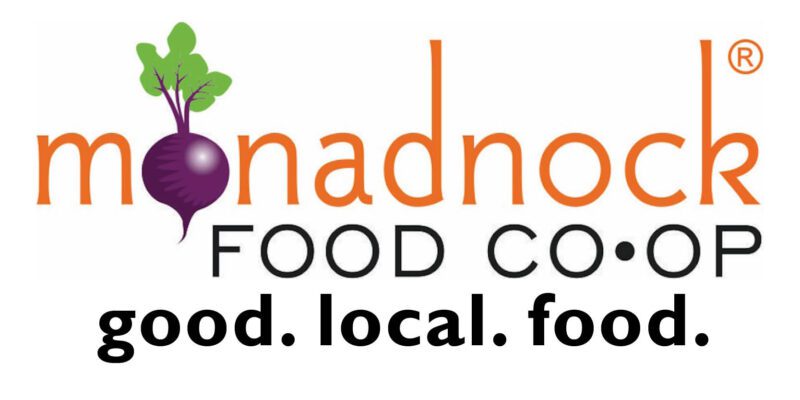As you may have heard, the Co-op recently expanded its composting capacity through a new partnership with Martin’s Farm in Greenfield, MA. On an unusually warm February day I ventured down to tour the farm where our organic waste would soon become nutrient dense, certified organic compost.

Upon arrival at Martin’s Farm I was energetically greeted by owner, Adam Martin. As we walked the short distance to the windrows of compost, he told me the idyllic history of the farm. Adam’s father, Bob, purchased the farm in 1981 and started growing vegetables and raising animals. Not long after, in an effort to diversify, Bob was awarded one of the very first on-farm compost permits from the State of Massachusetts. They began collecting materials from their community to compost: cardboard would be shredded and made into animal bedding and produce scraps would be fed to animals — subsequently all ending up in one form or another in a windrow of compost.
The farm has grown and changed since this initial permit was issued, but their commitment to help our region solve the ever-growing waste problem has only increased. Adam explained to me that Massachusetts’ landfills are currently at capacity, and his passion for finding creative ways to tackle this enormous problem was clear as he explained to me at length the process the farm utilizes to turn “waste” into compost.

When a delivery of organic materials arrives at his farm, the waste is “broken open” into big piles which are sorted for contaminants (mostly glass and non-compostable plastic) by hand. The materials are then processed through “The Beast” which grinds, mixes and shreds all of the compostable materials.
After processing through The Beast, the material is put into windrows to decompose for about 5 weeks. The windrows are turned every couple of weeks with a tractor implement, by taking the materials from the inside of the pile to the outside of the pile, and the outside to the inside. Mixing the materials thoroughly brings oxygen into the piles, important for proper decomposition.

After the materials have sufficiently decomposed, the materials are sorted through a large machine — one piece of which Adam built himself. The compost is filtered through a fine screen, rocks are sorted with the help of gravity, and any remaining plastic contaminants are removed with the help of a huge vacuum. The compost is then ready to be sold to farmers, gardeners, and landscapers in which they will grow healthy plants.
Martin’s Farm is currently permitted by the state to accept 15 tons of food waste per day and they are rapidly approaching that level. I was truly astounded imagining 15 tons of food waste arriving daily at Martin’s Farm. I was amazed that this relatively small farm, with only 3 acres of windrows for compost, had the potential to take 15 tons of waste per day out of our landfills and turn it into a nutrient rich source for local farmers to put back into their land. I left Martin’s Farm feeling inspired by Adam’s passion for his family business and his commitment to playing an important part in solving our ever growing waste problem – one banana peel, corn husk and avocado pit at a time.

